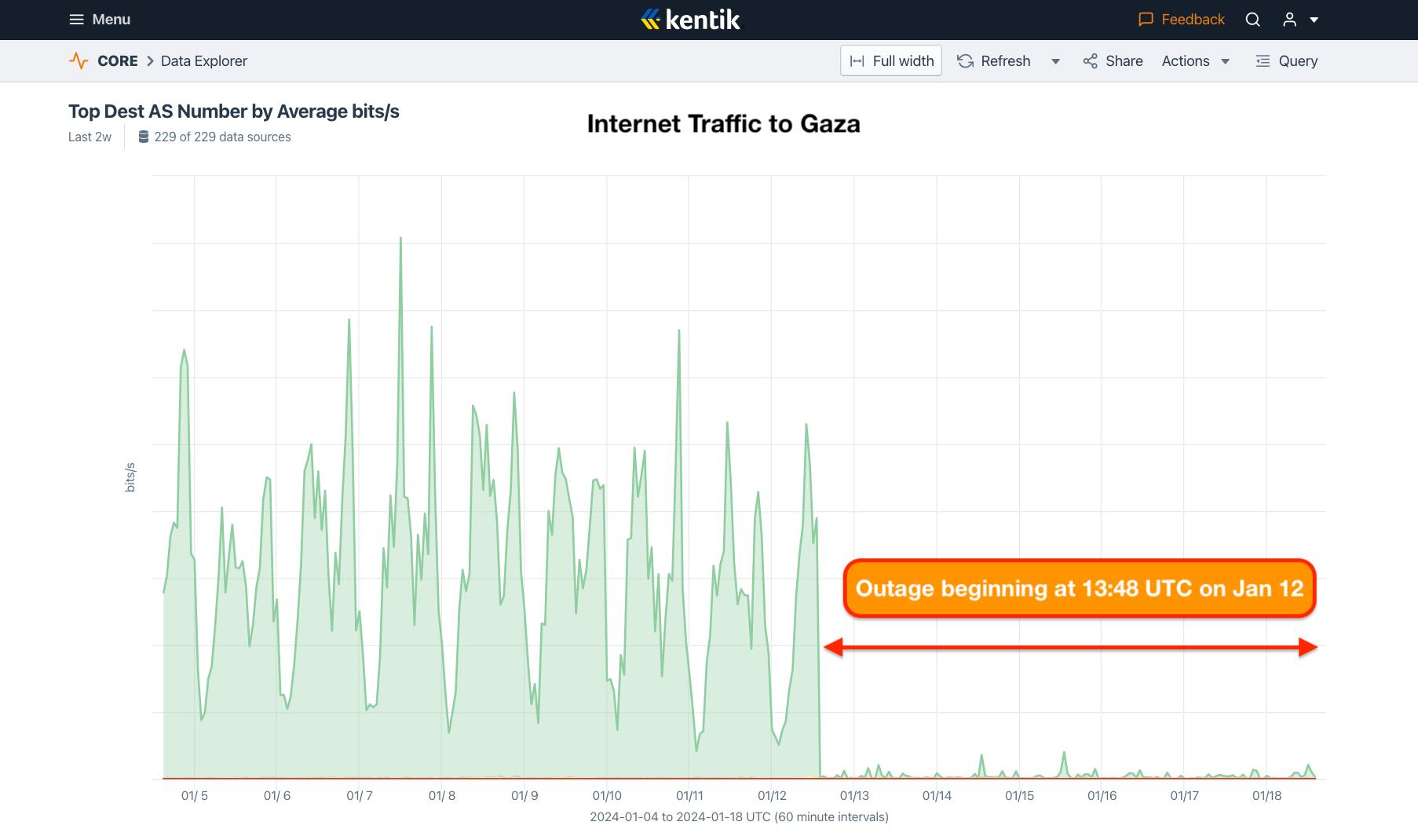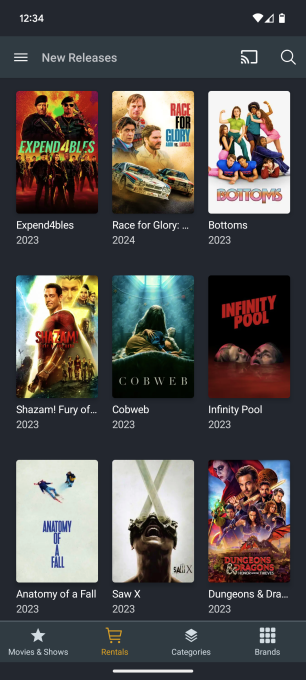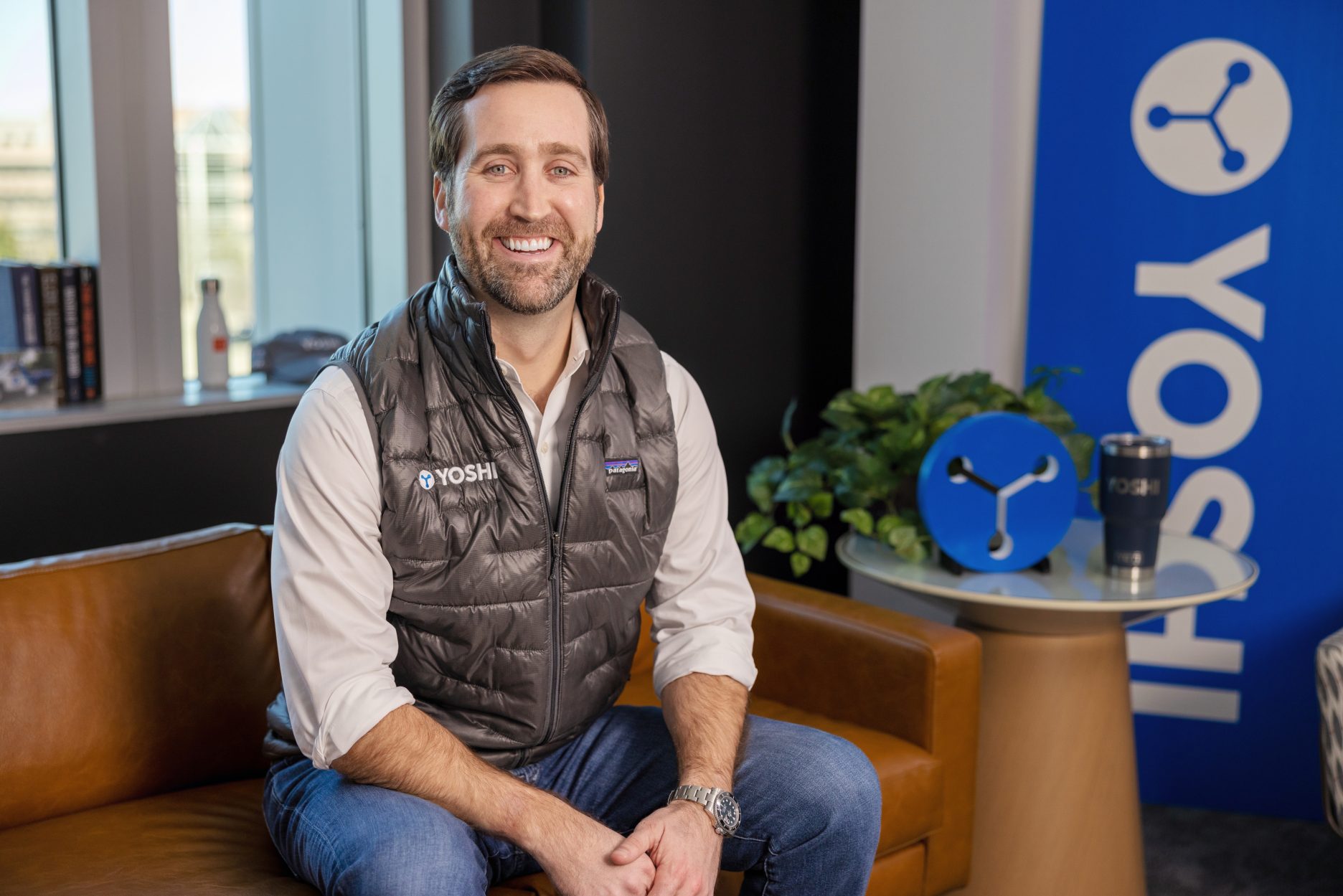Trending News
17 October, 2024
6.86°C New York

Former President Donald Trump picked Ohio Senator J.D. Vance as his running mate on Monday, as he runs to reclaim the office he lost to President Joe Biden in 2020.
Vance, who’s best known for his memoir, “Hillbilly Elegy,” spent years as a venture capitalist before leaving the industry when elected to the U.S. Senate in 2022.
After graduating from Yale Law School in 2013, Vance moved to San Francisco, where he was a principal at Mithril Capital, a fund co-founded by Peter Thiel and Ajay Royan. Mithril raised two funds, a $540 million and an $850 million vehicle in 2013 and 2017, respectively. Thiel was publicly active in politics in 2016, backing Trump’s first presidential campaign, and helped fund Vance’s Senate race, but has said he’s not planning to donate to any Republicans in the 2024 election.
In 2017, Vance left Mithril and joined Steve Case’s Washington, D.C.-based Revolution as a managing director. His move came when his wife, Usha Chilukuri Vance, landed a role as a Supreme Court clerk.
While at Revolution, Vance helped Case launch Rise of the Rest, a strategy focused on investing in startups outside the main U.S. tech hubs. At Revolution, the Republican VP nominee led deals into Michigan-based Aatmunn, a startup that develops software and wearable devices for on-the-job safety for construction workers. He also backed and served on the board of Kentucky-based AppHarvest, an indoor farming startup, that went public via a SPAC in 2021 but filed for bankruptcy protection in 2023.
However, Vance didn’t play an active role in Revolution’s second Rise of the Rest Seed Fund, which closed in 2019 with $150 million in capital commitments. Around the same time, he was focused on raising funds for his own firm, Cincinnati-based Narya Capital. By early 2020, the new firm raised $93 million for a fund targeting $125 million from limited partners including Thiel, Marc Andreessen and Eric Schmidt. Biotech entrepreneur Vivek Ramaswamy, who later joined the race as a Republican presidential nominee and was believed to be one of the front-runners for Trump’s VP, was also one of Narya’s limited partners, according to Axios.
Narya, just like Rise of the Rest, is primarily focused on backing startups in underserved areas of the U.S. While it’s unclear if Steve Case backed Narya’s first fund, the AOL founder has publicly distanced himself from Vance’s political views and career.
“I have not talked to [Vance] since he announced last year that he was running for Senate, and I’ve not supported that campaign,” Steve Case told TechCrunch in September of 2022.
After winning the Senate race, Vance stepped back from running Narya. The firm is currently managed by Narya’s co-founder, Colin Greenspon, a former partner at the Rise of the Rest Seed Fund and former managing director at Mithril. The firm is in the process of raising its $125 million second fund, according to a regulatory filing submitted to the SEC in late 2022.

Revolut has been granted a banking license from the Prudential Regulation Authority (PRA) in the U.K. This is a significant milestone for the London-based fintech company, particularly since it has been trying to secure this license since 2021.
Revolut has 45 million customers around the world, but its home market remains its most important one, with 9 million clients. The fintech also offers more products and services in the U.K. than in many other markets.
The company already has a banking license in the European Union. The Bank of Lithuania helped it get a license in 2018 and the company has been taking advantage of European passporting rules to operate in other European countries.
But the story has so far been different in the U.K. Not having a banking license in its home country has hindered the company’s capabilities when it comes to offering credit products (personal loans, credit cards, etc.) there and controlling a bigger chunk of its infrastructure.
“We are incredibly proud to reach this important milestone in the journey of the company and we will ensure we deliver on making Revolut the bank of choice for U.K. customers,” Revolut’s co-founder and CEO, Nik Storonsky, said in a statement.
Things aren’t going to change overnight for Revolut’s customers. The company says that the PRA has granted an authorization with restrictions, and Revolut is entering the so-called “mobilisation” stage. Other challenger banks, like Monzo and Starline, have been through the same process in the past.
According to the Bank of England, this mobilization phase can last a few months but shouldn’t take longer than 12 months. The most important restriction during that stage is that the bank cannot hold more than £50,000 in total customer deposits.
The PRA has granted a license to a subsidiary of Revolut Group Holdings Ltd, so the company isn’t going to transfer its U.K.-based customers to this new subsidiary just yet. Instead, the company will keep operating as an e-money institution regulated by the Financial Conduct Authority.
In its latest annual report, Revolut reported $2.2 billion in revenue in 2023 (£1.8 billion). More importantly, the company managed to generate $545 million in pre-tax profit (£438 million).
This was the first time in the last three years that the company published its audited annual results before the deadline. In other words, Revolut is growing up and becoming a more transparent company on the financial front. That must have contributed to today’s decision from the Prudential Regulation Authority.

Former President Donald Trump picked Ohio Senator J.D. Vance as his running mate on Monday, as he runs to reclaim the office he lost to President Joe Biden in 2020.
Vance, who’s best known for his memoir, “Hillbilly Elegy,” spent years as a venture capitalist before leaving the industry when elected to the U.S. Senate in 2022.
After graduating from Yale Law School in 2013, Vance moved to San Francisco, where he was a principal at Mithril Capital, a fund co-founded by Peter Thiel and Ajay Royan. Mithril raised two funds, a $540 million and an $850 million vehicle in 2013 and 2017, respectively. Thiel was publicly active in politics in 2016, backing Trump’s first presidential campaign, and helped fund Vance’s Senate race, but has said he’s not planning to donate to any Republicans in the 2024 election.
In 2017, Vance left Mithril and joined Steve Case’s Washington, D.C.-based Revolution as a managing director. His move came when his wife, Usha Chilukuri Vance, landed a role as a Supreme Court clerk.
While at Revolution, Vance helped Case launch Rise of the Rest, a strategy focused on investing in startups outside the main U.S. tech hubs. At Revolution, the Republican VP nominee led deals into Michigan-based Aatmunn, a startup that develops software and wearable devices for on-the-job safety for construction workers. He also backed and served on the board of Kentucky-based AppHarvest, an indoor farming startup, that went public via a SPAC in 2021 but filed for bankruptcy protection in 2023.
However, Vance didn’t play an active role in Revolution’s second Rise of the Rest Seed Fund, which closed in 2019 with $150 million in capital commitments. Around the same time, he was focused on raising funds for his own firm, Cincinnati-based Narya Capital. By early 2020, the new firm raised $93 million for a fund targeting $125 million from limited partners including Thiel, Marc Andreessen and Eric Schmidt. Biotech entrepreneur Vivek Ramaswamy, who later joined the race as a Republican presidential nominee and was believed to be one of the front-runners for Trump’s VP, was also one of Narya’s limited partners, according to Axios.
Narya, just like Rise of the Rest, is primarily focused on backing startups in underserved areas of the U.S. While it’s unclear if Steve Case backed Narya’s first fund, the AOL founder has publicly distanced himself from Vance’s political views and career.
“I have not talked to [Vance] since he announced last year that he was running for Senate, and I’ve not supported that campaign,” Steve Case told TechCrunch in September of 2022.
After winning the Senate race, Vance stepped back from running Narya. The firm is currently managed by Narya’s co-founder, Colin Greenspon, a former partner at the Rise of the Rest Seed Fund and former managing director at Mithril. The firm is in the process of raising its $125 million second fund, according to a regulatory filing submitted to the SEC in late 2022.

Revolut has been granted a banking license from the Prudential Regulation Authority (PRA) in the U.K. This is a significant milestone for the London-based fintech company, particularly since it has been trying to secure this license since 2021.
Revolut has 45 million customers around the world, but its home market remains its most important one, with 9 million clients. The fintech also offers more products and services in the U.K. than in many other markets.
The company already has a banking license in the European Union. The Bank of Lithuania helped it get a license in 2018 and the company has been taking advantage of European passporting rules to operate in other European countries.
But the story has so far been different in the U.K. Not having a banking license in its home country has hindered the company’s capabilities when it comes to offering credit products (personal loans, credit cards, etc.) there and controlling a bigger chunk of its infrastructure.
“We are incredibly proud to reach this important milestone in the journey of the company and we will ensure we deliver on making Revolut the bank of choice for U.K. customers,” Revolut’s co-founder and CEO, Nik Storonsky, said in a statement.
Things aren’t going to change overnight for Revolut’s customers. The company says that the PRA has granted an authorization with restrictions, and Revolut is entering the so-called “mobilisation” stage. Other challenger banks, like Monzo and Starline, have been through the same process in the past.
According to the Bank of England, this mobilization phase can last a few months but shouldn’t take longer than 12 months. The most important restriction during that stage is that the bank cannot hold more than £50,000 in total customer deposits.
The PRA has granted a license to a subsidiary of Revolut Group Holdings Ltd, so the company isn’t going to transfer its U.K.-based customers to this new subsidiary just yet. Instead, the company will keep operating as an e-money institution regulated by the Financial Conduct Authority.
In its latest annual report, Revolut reported $2.2 billion in revenue in 2023 (£1.8 billion). More importantly, the company managed to generate $545 million in pre-tax profit (£438 million).
This was the first time in the last three years that the company published its audited annual results before the deadline. In other words, Revolut is growing up and becoming a more transparent company on the financial front. That must have contributed to today’s decision from the Prudential Regulation Authority.

Internet monitoring firms say a near-total internet blackout in Gaza is reaching its seventh day, the longest outage of the ongoing Israel-Hamas conflict so far.
Doug Madory, the director of internet analysis at Kentik, told TechCrunch in a Signal message that this is the “longest internet blackout ever and longer than all of the previous blackouts combined” in Gaza.

On January 12, Palestinian telecom giant Paltel announced that “all telecom services in Gaza Strip have been lost due to the ongoing aggression. Gaza is blacked out again.”
Paltel said that the shutdown is the result of damaged infrastructure in Khan Younis, a city in the south of the Gaza strip, according to The New York Times.
Early on Thursday, internet monitoring firm NetBlocks reported on X (previously Twitter) that its data showed an outage lasting 144 hours (six days) and counting, which lines up with the data collected by Kentik and Paltel’s public announcement. According to NetBlocks, this is the “ninth and longest sustained” telecom’s outage since the onset of the present conflict with Israel.
David Belson, the head of data insight at Cloudflare, which also monitors internet connectivity across the world, told TechCrunch on Thursday that there is an ongoing internet outage in Gaza.
When TechCrunch tried to reach out on a chat messaging app to a telecom engineer, who previously requested to remain anonymous to protect his safety, the message could not be delivered.
Nebal Farsakh, a spokesperson for the humanitarian organization Palestine Red Crescent Society, told TechCrunch that the internet blackout is impacting the organization’s efforts to aid the injured.
“People in Gaza are unable to call the 101 emergency line to get ambulances,” Farsakh said in an audio message. “And this is absolutely hindering the work of our ambulances and delaying their arrivals to the wounded people.”
A spokesperson for Israel Defense Forces did not respond to TechCrunch’s request for comment.
Hamas, designated as a terrorist organization by U.S. and U.K. governments, launched a surprise attack on October 7 targeting Israelis in their homes, killing at least 1,200 people. In the months following, Israeli military forces responded with retaliatory air strikes and a ground offensive in Gaza that have killed at least 22,000 people in the territory, according to recent data by Palestinian authorities.
Digital rights organization Access Now, which regularly campaigns against internet shutdowns across the globe, wrote in a press release that “documenting and sharing information about what is happening on the ground is increasingly challenging, if not outright impossible,” as a result of the outages.
Hisham Mhanna, a spokesperson for the International Committee of the Red Cross, told The Times that “when you try to plan for any mission during a blackout, you cannot predict the surprises or challenges that the team may face on their way — it’s hard to report back to our headquarters.”
“This is where it becomes dangerous,” said Mhanna.
Nazar Sadawi, a correspondent with Turkish Radio and Television who was working in Gaza as of the end of December, told The Nation magazine that the internet shutdowns have forced journalists to revert to traditional methods of reporting, such as walking between bombed areas, talking to survivors and witnesses to understand casualty numbers, and listening to the radio.
“The news that I used to get in three minutes I now get in an hour or two,” said Sadawi.
Updated with comment from Palestine Red Crescent Society. Corrected the number killed in Hamas’ attack on October 7 to at least 1,200 people, as confirmed by an Israel government spokesperson in November. This was due to an editor’s error. ZW
Internet access in Gaza partially restored after blackout

“It’s the single best time to invest in [crypto] companies,” according to 10T Holdings and 1RoundTable Partners’ CEO, Dan Tapiero. Crypto reporter Jacquelyn Melinek has the inside scoop on why his firm is taking the long view to ride out the volatility of the web3 landscape as it raises its fourth fund.
Full TechCrunch+ articles are only available to members.
Use discount code TCPLUSROUNDUP to save 20% off a one- or two-year subscription.
Thanks for reading!
Karyne
https://techcrunch.com/2024/01/23/1roundtable-800m-growth-crypto-fund/

The percentage of AI hires hailing from top schools or those with PhDs has halved since 2015, according to a new survey. Big companies like OpenAI and Anthropic seem to be looking far and wide for people to work on AI as demand for talent skyrockets even as layoffs make headlines every week.
There’s an AI ‘brain drain’ in academia

“The real power of GenAI lies in its ability to lay a foundation for long-term, sustainable success in a constantly evolving landscape,” writes Prosus Group’s Carrie Ryan, laying out a playbook on how to succeed in such a tough market.
Navigate the GenAI era with this startup map
 To receive the TechCrunch+ Roundup as an email each Tuesday and Friday, scroll down to find the “sign up for newsletters” section on this page, select “TechCrunch+ Roundup,” enter your email, and click “subscribe.”
To receive the TechCrunch+ Roundup as an email each Tuesday and Friday, scroll down to find the “sign up for newsletters” section on this page, select “TechCrunch+ Roundup,” enter your email, and click “subscribe.”

Founders looking to raise a Series A will continue to have a hard time, even though the VC market is looking better, writes Dominic-Madori Davis. “Time goes by fast, and in my experience, this catches a lot of founders unaware. Focus on your metrics immediately,” one VC told her.
Here’s what to know to raise a Series A right now

Dear Sophie,
I’m a citizen of India. I will graduate from a U.S. master’s degree program in the spring. I’m interested in working in space technology and will be applying for jobs in that field while I’m on OPT. I’ve heard that most space tech companies are reluctant to hire individuals on F-1 student visas due to export rules and other compliance issues. How can I one day pursue my dreams?
— Space Savvy
Ask Sophie: As an immigrant, how can I work in space tech?

Fresh on the heels of its $40 million fundraise, streaming media company Plex is today announcing its expansion into a new business: a movie rentals storefront. The addition, which will initially be offered to U.S. customers, will give the streamer another means of generating revenue beyond its subscription products and ad-supported streaming — a diversification that will prove critical as the ad market continues to be unpredictable.
At launch, the marketplace will offer movies from top studios, including WB, Paramount, MGM, Lionsgate and A24, which means Plex users will be able to rent titles like “Barbie,” “Wonka,” “Aquaman and the Lost Kingdom,” “Mission: Impossible — Dead Reckoning,” “The Color Purple,” “Expend4bles,” “PAW Patrol: The Mighty Movie,” “Hunger Games: The Ballad of Songbirds and Snakes,” “Mean Girls” and others.

Plex says there will be just over 1,000 titles available to rent starting at $3.99, but the number of titles will grow over time. Titles will also move in and out of windows, so the number of rentals will fluctuate over time, as well.
The company had teased its plans for a TV and movie rental marketplace for years, but never quite got to the finish line as other priorities took over. Initially planned for just ahead of the COVID-19 pandemic, things changed as Plex, like many other companies, saw an influx of streaming customers which shifted its focus. Other technical concerns also slowed things down at times.
However, at the Consumer Electronics Show (CES) this year, Plex confirmed a rentals marketplace was nearing launch. But as it turns out, the storefront will feature just movies for the time being — not TV shows. It also won’t offer movies for purchase alongside the rentals, because Plex’s user surveys found that rentals were in more demand.

“We’re looking at the purchase use case because that creates some additional wrinkles — now you’ve got to keep this locker for people long-term and does that really make sense [for us]?,” explained Plex CEO Keith Valory. He noted that the lack of TV show rentals also came from user surveys, which found that most would still turn to streaming services for watching TV, but would be more interested in renting movies.
Once users rent a movie, they have 30 days to watch. After starting the rental, you’ll have 48 hours to finish viewing it, similar to other marketplaces. The movie will also appear in the “Continue Watching” section on Plex’s home screen if you don’t finish watching it upon your first go. The company plans to add more studio partners to its movie rentals store over time, it says.
While there are already plenty of other places where consumers can rent movies today, Plex believes its recommendation capabilities will be a differentiator for its business. Today, Plex’s customers use its software to organize their home media, stream live channels, watch ad-supported TV and movies, and discover new shows across their services or via their friends’ viewing habits through newer social networking features. (The latter got Plex into hot water recently as customers discovered they had shared their viewing of content they’d rather have kept quiet. Plex says it has adjusted this sharing feature to make it more obvious to users that they were opting in.)
That plethora of user data could help Plex drive more users to movie rentals, the company says. For instance, if you saw that your friend had just watched a new movie that you had on your watchlist, you might be inspired to rent it and watch it, too.

“I think we’re well ahead of the market from a technology standpoint on our personalization and recommendations,” Valory says. “And we use a fair bit of machine learning and other heuristics to kind of get that. I think one of the advantages we have when we build our recommendation engine is that it’s across all content,” he adds.
Of course, Plex also has to contend with being a partner to studios when, in fact, its software solution is used to store people’s home media collections — including movies ripped from DVDs in years past. The company stresses that’s not an issue, however, because it works with the studio partners to provide protection capabilities and watermarking to shut down illegal use and protect their copyright in the case that something gets compromised.
The new movie marketplace will launch across platforms, Plex notes, including its apps on Amazon Fire TV, Apple TV, Android TV/Google TV, Roku, smart TVs (LG, Hisense, Samsung, Sony, VIZIO), game consoles and Apple and Android smartphones and tablets.

Troubled EV startup Faraday Future has issued its first recall, covering all 11 vehicles it built last year, as it fights to hold onto its Los Angeles headquarters.
The recall centers around a problem with the warning light for the airbags in Faraday Future’s FF91 SUV. The company apparently discovered that an error in the car’s software could prevent the warning light from turning on if there is a problem with the airbags.
Faraday Future says it will “schedule concierge pick up, and redelivery, of the owners’ vehicles” to fix the software. So far, the earliest customers have been celebrities like Selling Sunset’s Jason Oppenheim, and (yes, seriously) singer Chris Brown.
The recall comes as Faraday appears to be extremely low on cash. The landlord of its LA headquarters is trying to evict the startup after Faraday missed multiple lease payments. (A hearing is scheduled for early April.) Faraday has furloughed or cut the salaries of many of its remaining employees — cost-saving measures it recently extended through mid-to-late March, according to emails viewed by TechCrunch.
Still, it is remarkable that after nearly 10 years and close to $4 billion in losses, Faraday Future has even made it to the point that it needs to issue a recall at all.

Almost 10 years ago, Bryan Frist, Nick Alexander and Daniel Hunter had an idea to inject some technology into the automotive industry. Using the initial entry point of gas, they started the Yoshi Mobility app to deliver gas to San Francisco–area consumers on their day of choice for $20 per month.
“The automotive industry was one that was kind of untouched by innovation,” Frist told TechCrunch. “We had this idea, in the age of Amazon where everything was getting delivered, that you would never go to the gas station again.”
The trio took Yoshi through Y Combinator in the summer of 2016 and began to expand, competing at the time with venture-backed companies like Filld, Wrench and Booster. By 2017, the company was also in Atlanta and Nashville, Tennessee, and offering additional services, including car washes, oil changes and ordered supplies like new windshield wiper blades.
Yoshi also raised $2.1 million from investors, including ZhenFund; Joe Montana’s Liquid 2 Ventures; and Ali Rowghani, Twitter’s former CFO and COO and the founding managing director of YC’s Continuity Fund.
Over the years, it went on to raise an additional $36.7 million in Series A and B capital backed by strategic investors, including ExxonMobil and General Motors Ventures, as well as DN Automotive and NBA All-Star Kevin Durant.
Yoshi raises $2.1 million to fill up your car, or wash it, anywhere
Today, Nashville-based Yoshi Mobility is settled into three business lines: preventative maintenance, virtual vehicle inspections and electric vehicle charging. It has boots on the ground in 15 states but can offer vehicle services to customers in all 50 states. It has completed millions of vehicle services to date.
Yoshi Mobility has increased its revenue 10x monthly since its Series B in late 2020, Frist said. The company still provides consumer services, but it has leaned more into the commercial side of its business. It now offers virtual vehicle inspection business for fleets, racking up corporate partnerships with Fortune 100 companies like Uber and Turo.
Its virtual vehicle inspections are also popular in the gig economy, especially in states where drivers and small business owners are required to have an inspection. Yoshi provides an inspection in up to 10 minutes.

In March, the company completed its first acquisition of Mobile Auto Concepts Inc., a mobile automotive services company offering preventative maintenance, tire care and replacement, multipoint inspections and eco-friendly washes.
“Mobile Auto is similar to many of our competitors that are just doing services,” Frist said. “We think the comprehensive package is what’s valuable. We work a lot with fleets now, and they were always asking us that while we are filling up the car, can we also change the tires or wash the car. Now we can do all of that with a one-stop solution.”
Yoshi Mobility’s third new business line, a mobile electric vehicle charging platform, goes after Tesla in a way. It’s addressing the EV industry’s well-known current challenges, including costly repairs, and future challenges related to charging EV fleets. The platform will offer EV owners and enterprise customers on-the-go charging, maintenance and support.
Frist, a Tesla driver for the past eight years, said the EV market “is just massive,” so there is room for a lot of players. For Yoshi, this means going after partners that don’t want to build out an EV charging station on their properties — or don’t have the available space.
“If the adoption goes the way that we and industry experts think it will, there need to be solutions,” Frist said.
The entrance of all those business lines is buoyed by $26 million in new Series C funding, valuing the company at over $200 million, Frist said. General Motors Ventures leads this round joined by new strategic investor and well-known tire brand Bridgestone Americas. International investors include Universal Motors Agencies and Shikra Limited. Yoshi Mobility’s total investment is now over $60 million.
Bridgestone liked the mobility aspect of what Yoshi is doing, Frist said. “They’re investing in mobility companies,” he said. “They launched Firestone Direct, where they have vans that go out and can change tires. We’re doing exactly that now, and that’s how they got involved.”
Armed with the new funds, Yoshi Mobility will scale the preventative maintenance, virtual vehicle inspections and electric vehicle charging business lines. It works with GM’s OnStar, meaning its telematics connect to some 34% of the cars on the road, Frist said.
“There are a million touch points we can have from physically touching the car to the virtual telematics, which is going to propel us into this next stage,” Frist said. “We see ourselves as the ‘Amazon of car care,’ getting into automotive with gas the same way they got into delivery with books. We always saw ourselves doing much more, so in the next five to 10 years, we will look totally different than we look even today.”
Story updated on April 16, 2024, to remove Toyota Connect as the company does not work with Yoshi Mobility.
All the future of transportation tech that stood out at CES 2024